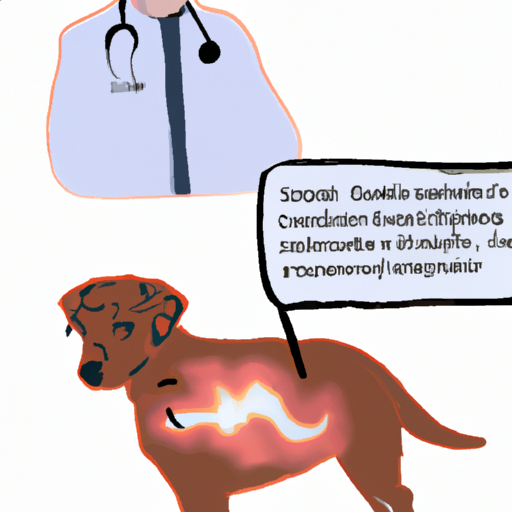As a caregiver, you always want the best for your furry friend. Understanding the health issues that can affect them is crucial to providing the care they need. One such health issue is colitis in dogs. Here, we’ll take an in-depth look at what colitis is, how it affects your dog, and what you can do about it.
Why Colitis Matters to Your Pooch
First, let’s understand what colitis is. Colitis is inflammation of the colon, or large intestine, which can cause discomfort and changes in a dog’s bowel habits. If your dog is suffering from colitis, they may exhibit symptoms such as:
- Diarrhea
- Blood or mucus in stool
- Frequent, small amounts of feces
- Weight loss
While these symptoms can be distressing, it’s important to remember that colitis is usually treatable with the right care and attention.
What Causes Colitis in Dogs
Colitis in dogs can be caused by a variety of factors. Some of the most common include:
- Stress
- Dietary intolerance or allergy
- Infection (bacterial, viral, or parasitic)
- Inflammatory bowel disease
Sometimes, the cause of colitis is unknown. This is known as idiopathic colitis and it’s one of the most common types of colitis in dogs.
| Common Causes | Less Common Causes |
|---|---|
| Stress | Drug reaction |
| Dietary issues | Immune disorders |
| Infections | Cancer |
How Colitis in Dogs is Diagnosed
If you suspect your dog has colitis, it’s important to get them to a vet as soon as possible. The vet will likely perform a physical examination and ask about your dog’s medical history. They may also order tests such as blood tests, stool tests, and imaging tests such as X-rays or ultrasound to confirm the diagnosis.
Treatment Options for Colitis in Dogs
Once a vet has diagnosed your dog with colitis, they can recommend a treatment plan. This may include:
- Dietary changes: Feeding your dog a high-fiber diet can help manage colitis symptoms.
- Medications: Anti-inflammatory drugs, antibiotics, or other medications may be needed.
- Hospitalization: In severe cases, your dog may need to be hospitalized for treatment.
Preventing Colitis in Dogs
Preventing colitis can be difficult, as it’s often due to causes that are not easily controlled. However, you can take steps to reduce your dog’s risk:
- Provide a balanced diet: Avoid sudden changes in your dog’s diet and make sure they’re getting the right nutrients.
- Regular exercise: Regular physical activity can help keep your dog’s digestive system healthy.
- Regular vet visits: Regular check-ups can help catch potential problems early.
Frequently Asked Questions
What is colitis in dogs?
Colitis is inflammation of the colon in dogs. It can cause symptoms such as diarrhea, weight loss, and changes in bowel habits.
What causes colitis in dogs?
Colitis can be caused by stress, dietary issues, infections, and more. Sometimes the cause is unknown.
How is colitis diagnosed?
A vet will perform a physical examination, ask about your dog’s medical history, and may order tests to confirm the diagnosis.
How is colitis treated?
Treatment options include dietary changes, medications, and in severe cases, hospitalization.
Can colitis be prevented?
While it’s difficult to completely prevent colitis, providing a balanced diet, ensuring regular exercise, and scheduling regular vet visits can reduce risk.



